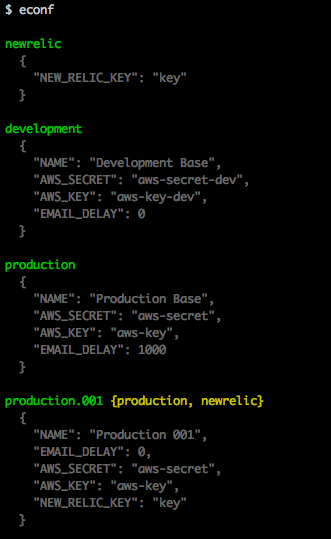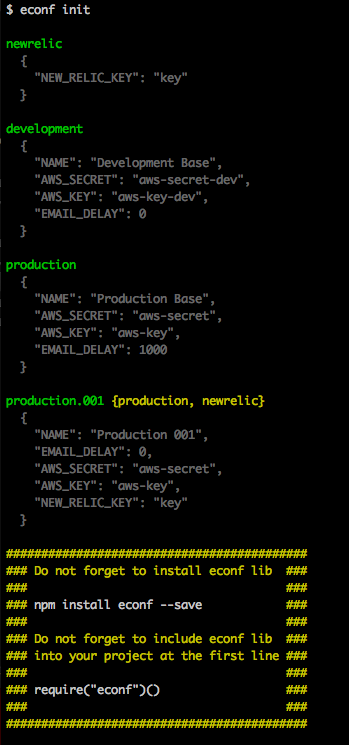econf
Load configs from hierarchical objects to process.env
By default econf tries to load .econf.js file
Usage
Import the econf at the top of your code to ensure that your configurations will be loaded before anything else
;optionally, you can specify the file name and custom env name
'config.js' 'NODE_ENV';.econf.js example
moduleexports = _name: 'newrelic' NEW_RELIC_KEY: 'key' _name: 'production' NAME: 'Production Base' AWS_SECRET: 'aws-secret' AWS_KEY: 'aws-key' EMAIL_DELAY: 1000 _name: 'production.001' _extend: 'production' 'newrelic' NAME: 'Production 001' EMAIL_DELAY: 0 .econf.js example as object
moduleexports = 'newrelic': NEW_RELIC_KEY: 'key' 'production': NAME: 'Production Base' AWS_SECRET: 'aws-secret' AWS_KEY: 'aws-key' EMAIL_DELAY: 1000 'production.001': _extend: 'production' 'newrelic' NAME: 'Production 001' EMAIL_DELAY: 0 The config above will inject the code below into process.env
"_name": "production.001" "_extend": "production" "newrelic" "NAME": "Production 001" "EMAIL_DELAY": 0 "AWS_SECRET": "aws-secret" "AWS_KEY": "aws-key" "NEW_RELIC_KEY": "key"Global Usage
npm install econf -gWith global version you can view your config parsed, just execute econf into your project directory
econf
To create a example .econf.js file into your project just execute econf init into your project directory
econf init


